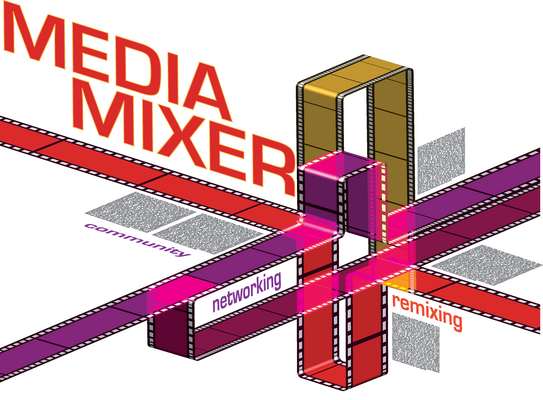MU's New Media Technology Group leads MEDIAMIXER project: A community and networking for the remixing of online media
With a total budget of almost one million Euro funded by the European Union, the MediaMixer project was launched in November 2012 with representatives from eight expert organizations from seven different European countries. The FP7 support action project focuses on enabling media owners to create and share MEDIA FRAGMENTS so that they can see increased re-use and monetarization of their assets and media consumers can more easily find and acquire those assets.
The project has set up a community of video producers, hosters, and redistributors who will be supported in the adoption of semantic multimedia technology in their systems and workflows to build a European market for media fragment re-purposing and re-sale. MediaMixer will focus on ways to address potentially limiting factors in the current market, simplifying aspects of content access, provision, remixing and repurposing, and tackling aspects potentially obstructive to obtaining rights for use, primarily of benefit to the established media industry, but in a way that also encourages wider access outside mainstream channels, such as in User Generated Content (UGC) portals and newer entrants monetising media production and consumption.
MediaMixer is driven in its consortium by a group of leading research organisations in the area of semantic multimedia. This area is focused on capturing the high level (conceptual) meaning of media assets and their parts (fragments), and hence enabling software and systems to more automatically and meaningfully process and handle media workflows such as analysis, annotation, storage & retrieval, rights management and re-use (including support for re-lease or re-sale) of those assets and their fragments.
Under the leadership of MU’s New Media Technology Group which has assumed the role of project coordinator, the consortium consists of the Centre for Research and Technology Hellas – Informatics and Telematics Institute (CERTH-ITI), a non-profit organisation under the auspices of the General Secretarial of Research and Technology of Greece (GSRT), located in Thessaloniki, Greece; the EURECOM, a dynamic graduate school and research centre in communications systems in Sophia Antipolis, France; Condat AG is a medium sized company located in the centre of Berlin, Germany developing and integrating innovative solutions for leading European companies; the Jožef Stefan Institute (JSI), the leading Slovenian scientific research institute in natural sciences, life sciences and engineering, which also hosts and maintains the VideoLectures.NET platform (free and open access educational video lectures repository, also becoming a reference portal presenting high quality scientific lectures); Acuity Unlimited whose technical services business is a leading open source contributor to the Fedora Commons media asset repository software, based in London, UK; Citizenside who provides a platform for user-sourced video of actual events of interest to current affairs called the “Reporter Kit” to collect, fact check, and publish news-related user-generated content based in Paris, France; as well as the Universitat de Lleida (UdL), one of the pioneers in the application of semantic technologies to copyright management, based in Lleida, Spain.
The core partners with semantic multimedia experience (annotation, analysis, search, fragments) are MODUL, EURECOM, CERTH-ITI and CONDAT as well as Acuity Unlimited and UdL in the area of semantic digital rights technology.
Through a mix of online portal and collaborative events there will be a two way communication process between research and industry to overcome the prior barriers to uptake and bring awareness to the potential of the technology among the industry. For more about the project, see www.mediamixer.eu - and everyone is free to join the MediaMixer community and access new materials and latest announcements via http://community.mediamixer.eu.





